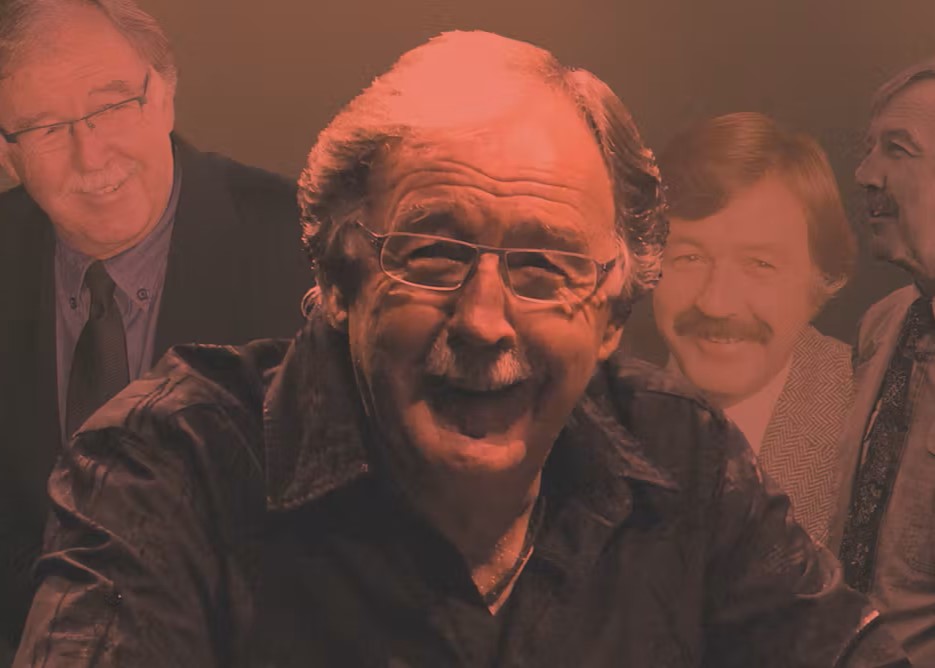Veteran journalist George Negus has died at the age of 82 after a battle with Alzheimer’s disease, his family has said in a statement. He passed away “peacefully surrounded by loved ones … all the while with his trademark smile”.
“Despite the challenges diseases like Alzheimer’s inflict on families, we still shared beautiful times, laughter and happiness together in recent times,” the family said.
“We also learnt a lot, too, so he would be happy about that.”
Born in 1942 in Brisbane, Negus began his journalistic career a little later than many, at the age of 28, after working as a high school teacher in Queensland. He started writing for The Australian and The Australian Financial Review before serving as press secretary for attorney-general Lionel Murphy in the Whitlam government.
Negus’ work spanned almost every Australian network and publication. He was part of the original reporting team for Channel Nine’s flagship current affairs program 60 Minutes in 1979, a role that made him a household name, and went on to be the first presenter of the ABC’s Foreign Correspondent and a host of Dateline on SBS.
He interviewed the likes of former UK prime minister Margaret Thatcher, Libyan leader Muammar Gaddafi and Soviet Union president Mikhail Gorbachev. Negus questioned former Australian prime ministers John Howard, Paul Keating and Bob Hawke, South African bishop Desmond Tutu, Hollywood director Steven Spielberg and many more.
Negus was made a Member of the Order of Australia in 2015, honoured for his service to the media.
Since the 1990s, he had also worked independently as a presenter and reporter for his own production and consulting company, alongside his partner Kirsty Cockburn.
In a heartfelt statement, Negus’ family paid tribute to the healthcare workers who aided him in his final months, sharing a photo of him with Ms Cockburn and their children Ned and Serge, as well as a photo of him sitting, smiling, after a meal.
“George told us endlessly that he never imagined having a family, so the part of his life we shared was everything to him, and always his priority,” the family said.
“While we know he will be celebrated for his unique contribution to journalism, football [a former Soccer Australia board member], and the environment, he would also want to be remembered for the incredible family man he was.”
They wrote that many people may have memories of him. “If you are looking to connect with those memories here are a few suggestions from us; kick a football, enjoy a hearty bowl of pasta, plan your next adventure to somewhere intriguing, or ask a curious question you think needs answering (and as he would say, the most important and simple one, ‘Why?’),” they said.
“Even better, do all of those things and do them together with people you love. That’s what he would have done.”
His passing prompted tributes from across the media industry yesterday.
ABC managing director David Anderson described Negus as a “giant of Australian television and journalism”.
“Australian audiences loved not only his natural charm but also his intellectual curiosity for the world around him,” Mr Anderson said.
ABC business reporter Peter Ryan said Negus had been “a great colleague, mentor and fun person to be around. [He was] always armed with yarns to spin. George set so many standards as a journalist – that live on today,” he wrote on X.
And Channel Ten anchor Sandra Sully described him as a “beloved veteran of the game”. “[He] defined the term foreign correspondent. Importantly though he was fearless and funny, now sorely missed,” she wrote.
Negus’s family has asked for privacy as they mourn.

